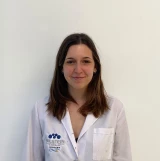
Company Biography
Development of neutralizing single domain antibodies against SARS-CoV-2 virus
María Florencia Pavan(1), Marina Bok(2),(3),(4), Juan Pablo Malito(2),(3), Gisela Ariana Marcoppido(5), Diego Rafael Franco(6), Juan Manuel Schammas(6), Elsa Baumeister(7), Albert Jonathan Auguste(8), William B. Stone(8), Lijuan Yuan(9), Andrés Wigdorovitz(2),(3),(4), Viviana Parrreño(2),(3),(4), Lorena Itatí Ibañez(1).
(1)CONICET‑Universidad de Buenos Aires, Instituto de Química Física de los Materiales, Medio Ambiente y Energía (INQUIMAE), Buenos Aires, Argentina.
(2)Incuinta, Instituto Nacional de Tecnología Agropecuaria (INTA), Buenos Aires, Argentina.
(3)Instituto de Virología e Innovaciones Tecnológicas, Consejo Nacional de Investigaciones Científicas y Técnicas (IVIT-CONICET), Buenos Aires, Argentina.
(4)Bioinnovo S.A, Buenos Aires, Argentina.
(5)Instituto de Investigación Patobiología, Centro de Investigaciones en Ciencias Veterinarias y Agronómicas (CICVyA), Instituto Nacional de Tecnología Agropecuaria (INTA), Buenos Aires, Argentina.
(6)Instituto de Virología, Centro de Investigaciones en Ciencias Veterinarias y Agronómicas (CICVyA), Instituto Nacional de Tecnología Agropecuaria (INTA).
(7)Servicio de Virosis respiratorias, Centro Nacional de Influenza de OMS, Laboratorio Nacional de Referencia de Enfermedades Respiratorias Virales del Ministerio de Salud, Departamento de Virología, Instituto Nacional de Enfermedades Infecciosas (INEI) -Administración Nacional de Laboratorios e Institutos de Salud (ANLIS) "Dr. Carlos G. Malbrán", Ciudad Autónoma de Buenos Aires, Argentina.
(8)Department of Entomology, Fralin Life Science Institute, Virginia Polytechnic Institute and State University, Blacksburg, USA.
(9)Department of Biomedical Sciences and Pathobiology, Virginia-Maryland College of Veterinary Medicine, Virginia Tech, Blacksburg, USA.
The recent emergence of the disease caused by the SARS-CoV-2 virus, COVID-19, is the third major coronavirus outbreak in the past 20 years. To date, there have been more than 79.9 million confirmed cases of COVID-19 and over 1.75 million deaths reported to the World Health Organization. Despite the recent approval of vaccines in several countries, the development of therapeutic and prophylactic molecules is still essential as a way to mitigate the effects of the disease, especially in cases of vaccine inefficiency or contraindication. The SARS-CoV-2 spike protein (S), containing the receptor-binding domain (RBD), is a potential therapeutic target. Llama-derived single domain antibodies (sdAbs) or nanobodies are small molecules with high stability, solubility and affinity that can be produced at low cost. For this reason, in this work we propose the development of neutralizing sdAbs to block the SARS-CoV-2 infection.
In order to obtain sdAbs, a llama was immunized with the pre-fusion and locked S and RBD proteins expressed in the HEK-293T cell line. After immunization high antibody titers against both proteins with neutralizing activity were observed. To generate a sdAbs library, total RNA from the llama peripheral blood lymphocytes was extracted and used as template to produce cDNA. sdAbs encoding sequences were amplified by PCR and cloned in the phagemid vector pMECS-GG. More than 80 clones of sdAbs against S and RBD proteins were selected by phage display. From these clones, 52 unique sdAbs were expressed in Escherichia coli WK6 and purified by immobilized metal chelate chromatography (IMAC) followed by size exclusion chromatography (SEC). At least 10 sdAbs were able to block transduction in a pseudovirus neutralization assay as well as infection of Vero cells with the wild-type SARS-CoV-2 virus circulating in Argentina and the United States of America. These sdAbs will be modified so as to generate bivalent antibodies, and their ability to inhibit the SARS-CoV-2 infection in vivo will be assessed in animal models. The strong neutralizing activity of some of these molecules highlights their potential to develop an intranasal treatment for COVID-19, that will not need cold chain.
In conclusion, we have developed sdAbs capable of neutralizing the SARS-CoV-2 virus in vitro. These promising results make Argentina one of the few countries in Latin America capable of producing this new type of technology and turning these sdAbs into therapeutic products.